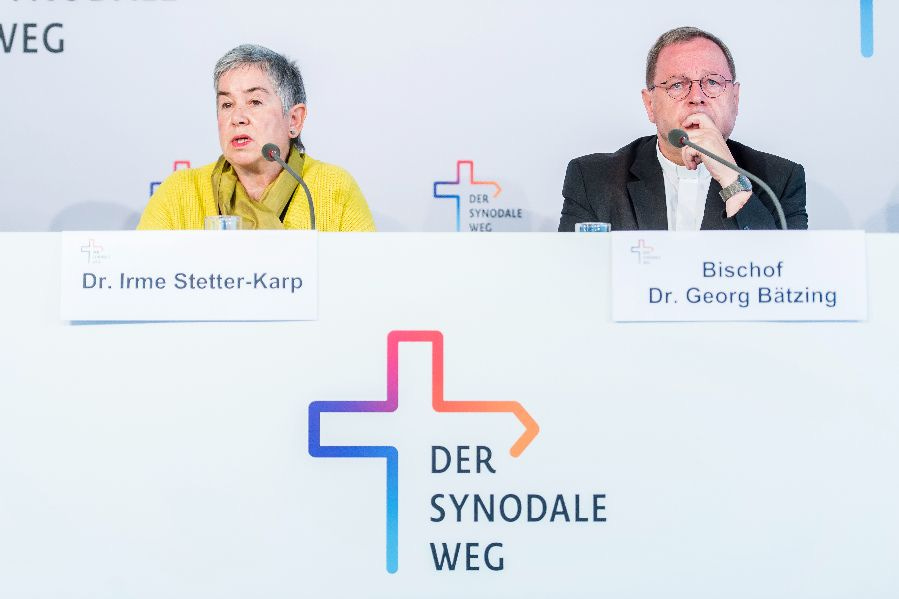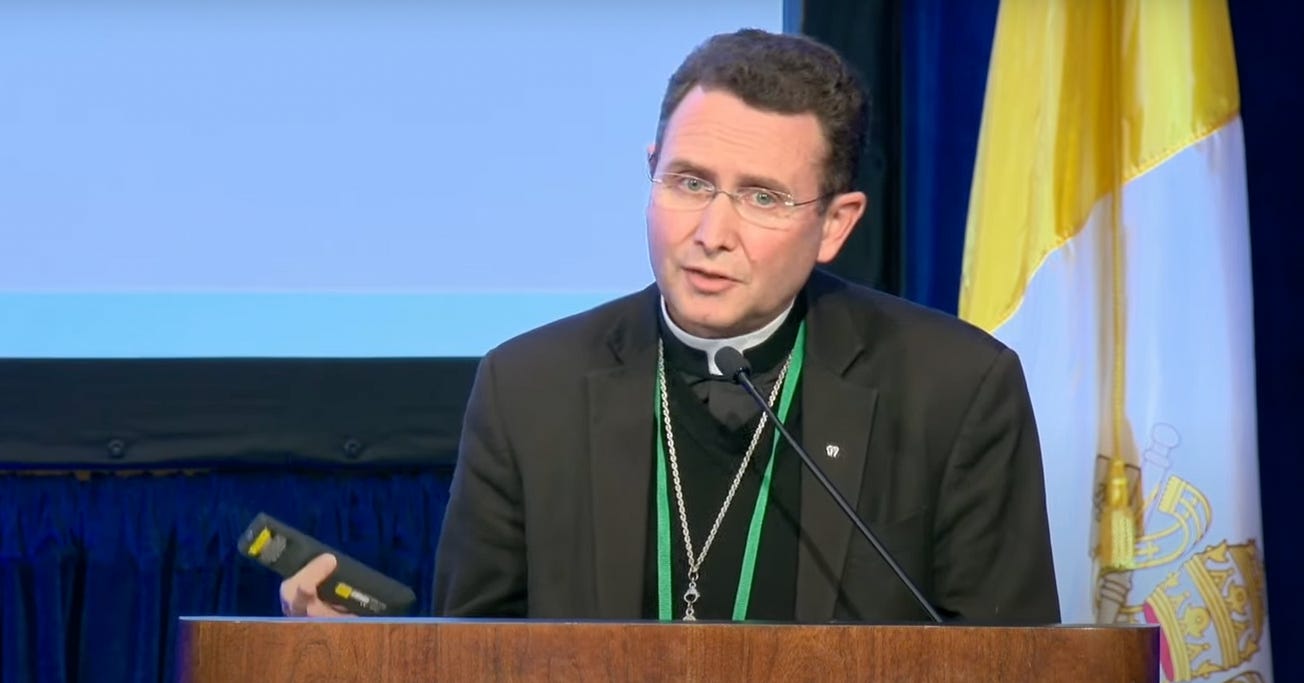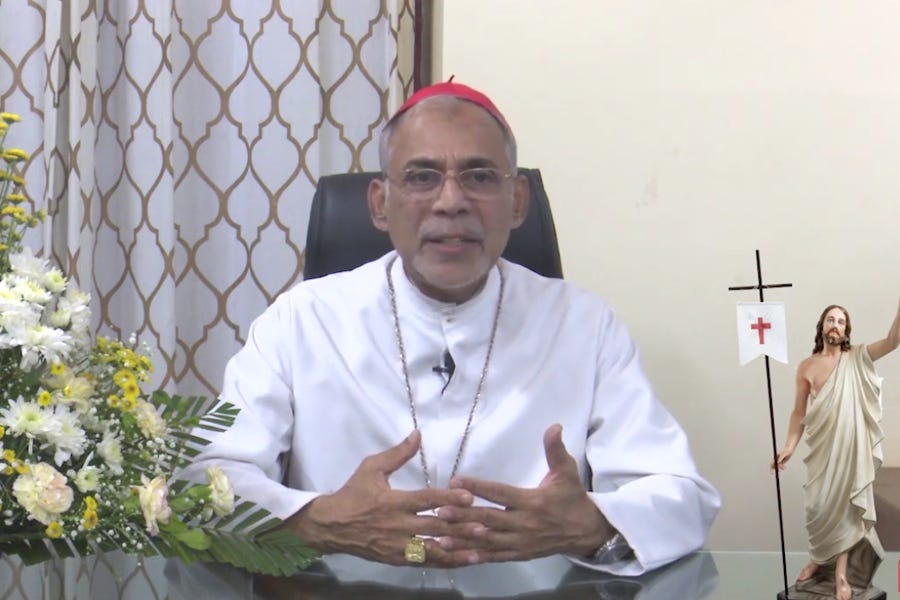
The leaders of Germany’s controversial “synodal way” have welcomed Pope Francis’ decision to extend the global synodal process by a year.
Irme Stetter-Karp and Bishop Georg Bätzing, the co-presidents of the German initiative, said on Oct. 17 that the extension of the process to October 2024 was “an important sign.”
The pope announced on Sunday that the worldwide reform process would end with two meetings of the world’s bishops in Rome, the first in October 2023, and a second in October 2024.
The 85-year-old said that the additional assembly of the Synod of Bishops in 2024 would allow “a more relaxed period of discernment.”
In a joint statement, Stetter-Karp and Bätzing said: “We welcome this step, which makes it clear that the Church is facing great challenges worldwide and is confronting them with the need for change.”
“The announcement of the global synod for the period Oct. 4-29, 2023, and for a second period of deliberation in October 2024, shows that Pope Francis considers synodality to be the decisive moment of change.”
“He explicitly emphasizes the participation of the people of God. So we assume that this participation does not end with the consultation process of 2021. On the synodal way in Germany, we have experienced consultation, direct cooperation, as a decisive moment of change.”
The pope formally launched the global synodal process in October 2021. It opened with a “diocesan phase” that featured local consultations with Catholics around the world. Participation rates varied widely, but in many cases were low.
Germany’s synodal way is a multi-year initiative bringing together the country’s bishops and lay representatives to discuss four main topics: power, the priesthood, women in the Church, and sexuality.
The Vatican has repeatedly intervened in the process, most recently in July, when it underlined that the synodal way has no power “to compel the bishops and the faithful to adopt new ways of governance and new approaches to doctrine and morals.”
At an acrimonious meeting in September, synodal way participants approved texts calling for changes to Church teaching on sexual morality and endorsed the creation of a permanent “synodal council” to oversee the local Church.
Germany’s bishops are preparing for an ad limina visit to Rome in November. It will be their first in seven years and include a meeting with Pope Francis and prefects of Vatican dicasteries scheduled for Nov. 18.
Senior German bishops’ conference officials visited Rome earlier this month to prepare the ad limina meetings. The General Secretariat of the Synod shared a photo of the German officials with its leaders, saying that they had met in “an atmosphere of great cordiality.”
Cardinal Mario Grech, the Secretary General of the Synod of Bishops, has lamented public criticism of the synodal way by bishops outside Germany.
“I have trust in the Catholic Church in Germany, in the bishops, I trust they know what they are doing,” he said in an interview for a magazine promoting the synodal way.
Pope Francis has granted private audiences to a series of German bishops in recent weeks, including Cardinal Reinhard Marx of Munich and Freising on Oct. 6, Bishop Franz-Josef Overbeck of Essen on Oct. 8, and Bishop Heiner Wilmer of Hildesheim on Oct. 17.
Concluding their joint statement, Stetter-Karp and Bätzing said: “The pope’s decision helps to shape the process and thus to take the right steps with calmness and decisiveness.”
“The Church in Germany wants to make its contribution to the worldwide process with the experiences of the synodal way. We are resolutely moving forward on this path.”




